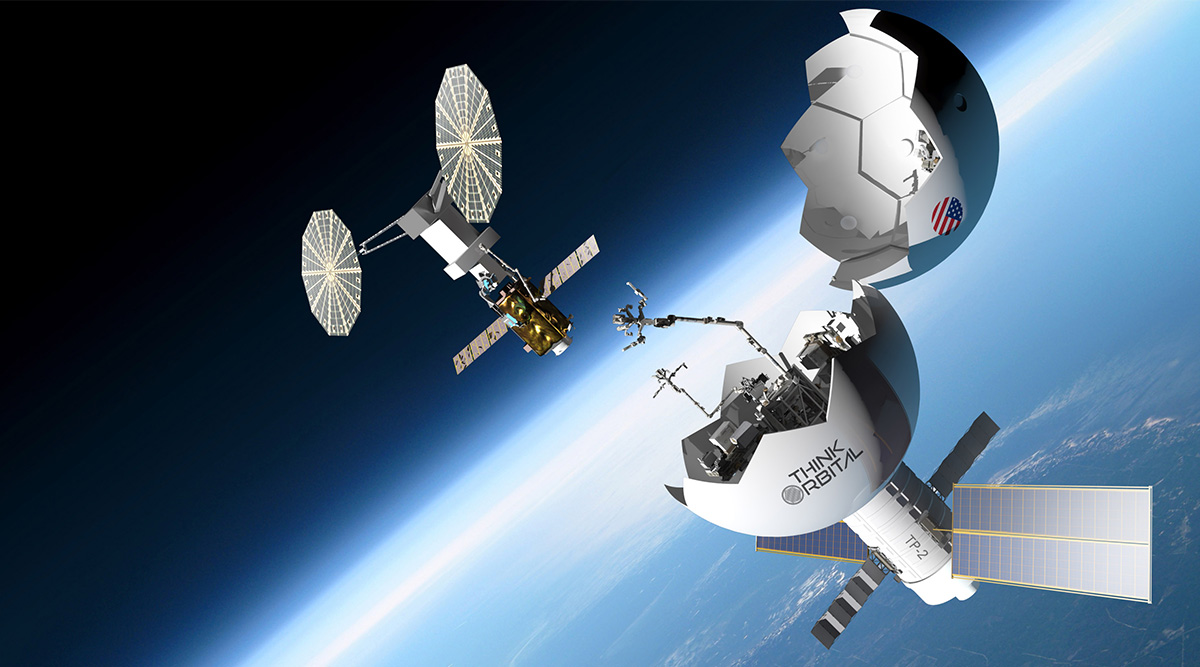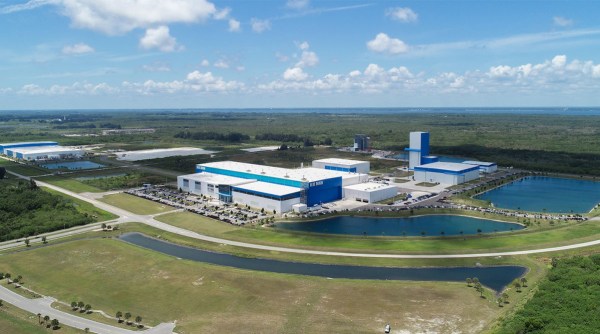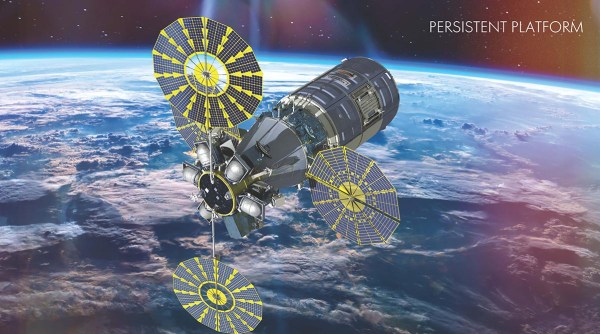NASA to help private companies, including SpaceX, Blue Origin, build space facilities
NASA is going to provide seven private US companies with expertise, technologies and other support to build space stations, launch systems and space manufacturing capabilities.
 Artist's impression of ThinkOrbital's ThinkPlatform in low-Earth orbit. (Image credit: Think Orbital via NASA)
Artist's impression of ThinkOrbital's ThinkPlatform in low-Earth orbit. (Image credit: Think Orbital via NASA) NASA on Friday announced it is partnering with seven US private companies including Jeff Bezos’s Blue Origin, Elon Musk’s SpaceX and Northrop Grumman to develop human spaceflight and low-Earth orbit space missions.
Through its Commercial Space Capabilities-2 initiative, (CSC-2) the space agency will provide technical expertise, assessments, technologies, data and more to these companies to advance commercial space-related efforts. The companies and the projects that NASA has selected are as follows:
Blue Origin
The Washington-based Blue Origin is a private space company founded by Jeff Bezos. Under CSC-2, the company will work with NASA to develop commercial space transportation capability. This is aimed at sending high-frequency crewed and uncrewed missions to orbit. Blue Origin was already selected by NASA to build the human landing system for the Artemis V mission.
 Blue Origin’s launch and manufacturing complex in Cape Canaveral, Florida. (Image credit: Blue Origin via NASA)
Blue Origin’s launch and manufacturing complex in Cape Canaveral, Florida. (Image credit: Blue Origin via NASA)
Northrop Grumman
Northrop Grumman is an aerospace and defence company that is one of the largest weapons manufacturers and military technology companies in the world. It also led the industry team for NASA’s James Webb Space Telescope. With NASA’s help under CSC-2, Northrop Grumman will develop the Persistent Platform, which should give manufacturing capabilities and robotic capabilities in low-Earth orbit.
 Illustration of Northrop Grumman’s Persistent Platform concept in low Earth orbit.(Image credit: Northrop Grumman via NASA)
Illustration of Northrop Grumman’s Persistent Platform concept in low Earth orbit.(Image credit: Northrop Grumman via NASA)
Sierra Space
The Colorado-based Sierra Space was carved out from the multi-billion dollar Sierra Nevada Corporation, which is an aerospace and national security contractor, in 2021. Under CSC-2, Sierra Space will take NASA’s help to develop a commercial low-Earth orbit ecosystem, including space transportation, in-space infrastructure and expandable space facilities.
SpaceX
California-based SpaceX likely needs no introduction, just like its owner Elon Musk. SpaceX will take help from NASA on developing its Starship launch system and evolving its Dragon spacecraft platform.
 The fully stacked Starship launch system at SpaceX’s Starbase facility in Boca Chica, Texas. (Image credit: SpaceX)
The fully stacked Starship launch system at SpaceX’s Starbase facility in Boca Chica, Texas. (Image credit: SpaceX)
Special Aerospace Services
Colorado-based Special Aerospace Services is an engineering and manufacturing firm with more than a decade of experience providing solutions to the aerospace, aviation, defence and energy industries, according to the company itself.
Special Aerospace Services will work with the space agency to develop an in-space servicing technology, propulsion tech, and a robotic technology that it calls the Autonomous Maneuvering Unit (AMU). These systems will be designed for the servicing, retrieval, and inspection of in-space systems.
ThinkOrbital
ThinkOrbital is a Colorado-based space technology company that set up its headquarters in the state earlier this year. The company will work with NASA to develop ThinkPlatforms and CONTESA.
ThinkPlatforms are self-assembling, single-launch, large-scale orbital platforms that should have many applications in low-Earth orbit, including in research, manufacturing and during astronaut missions. The CONTESA module will feature welding, cutting, inspection and additive manufacturing technologies to aid in low-Earth orbit manufacturing.
Vast
California-based Vast intends to launch what it claims will be the world’s first privately-led space station—Haven-1—as early as August 2025. Under CSC-2,
NASA will help Vast build microgravity and artificial gravity space stations in space, including the Haven-1, which will provide a microgravity environment for crew, research and in-space manufacturing capabilities.







